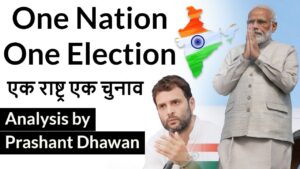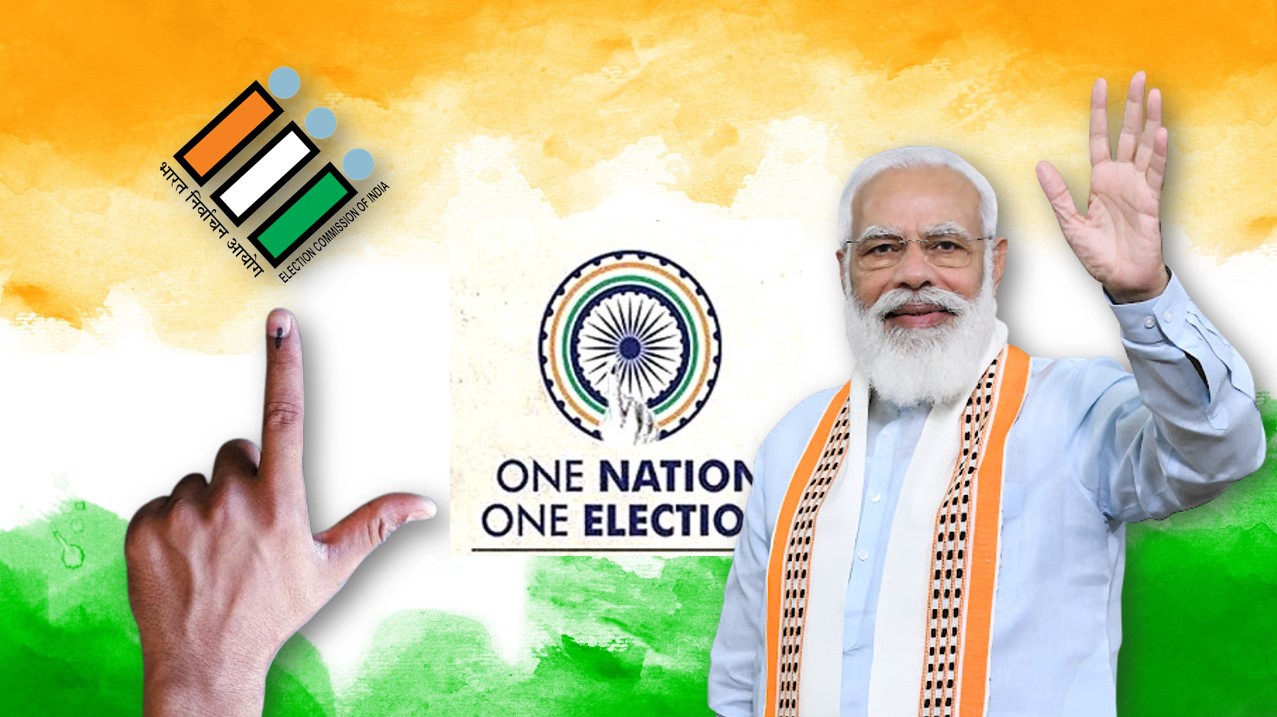Table of Contents
ToggleOne Nation, One Election News: BJP’s Key Reform Proposals
Introduction
In recent One Nation, One Election news, Union Home Minister Amit Shah has announced the Bharatiya Janata Party (BJP) plans to implement a Uniform Civil Code (UCC) and the ‘One Nation, One Election’ policy if they return to power. These proposals aim to streamline India’s legal and electoral systems, promising substantial changes in governance and societal norms.
One Nation, One Election News: Understanding the Concept
What is One Nation, One Election?
The ‘One Nation, One Election’ initiative proposes conducting simultaneous elections for the Lok Sabha (the lower house of India’s Parliament) and all state assemblies. Currently, elections are held at different times, leading to frequent impositions of the Model Code of Conduct, which disrupts governance and development activities.

Benefits of One Nation, One Election
- Cost Reduction: Simultaneous elections would significantly cut down the costs associated with deploying election officials and security forces multiple times.
- Improved Governance: Reducing the frequency of elections would allow uninterrupted governance, as the Model Code of Conduct often delays the implementation of welfare schemes.
- Increased Voter Turnout: Holding elections simultaneously may boost voter participation, as the logistical convenience could encourage more citizens to vote.
Challenges to One Nation One Election
- Constitutional Amendments: Implementing this policy would require amendments to several articles of the Constitution, such as Articles 83, 85, 172, 174, and 356. These amendments would need the support of both Parliament and a majority of state legislatures.
- Synchronization of Terms: Aligning the terms of all legislative bodies would be complex, particularly if a government falls before completing its term.
- Logistical and Practical Issues: The sheer scale of conducting nationwide elections simultaneously poses significant logistical challenges, given India’s vast and diverse population.
Also read – Malaika Arora and Arjun Kapoor Age Gap:The Age Gap and Its Impact
Political Reactions to One Nation One Election
While the proposal has received support from several quarters, it has also faced criticism from various opposition parties. Critics argue that it may undermine the federal structure of India and that it could disadvantage regional parties with limited resources.

Uniform Civil Code (UCC) News: Key Details
What is UCC?
The Uniform Civil Code aims to replace the various personal laws based on religious customs with a common set of laws applicable to all citizens, regardless of their religion. This proposal aligns with Article 44 of the Indian Constitution, which suggests the state should strive to secure a UCC for its citizens.
BJP’s Commitment to UCC
The BJP has long advocated for the UCC, and recently, they enacted it in Uttarakhand, a state where they hold a majority. Amit Shah emphasized that the UCC is seen as a significant social, legal, and religious reform. He highlighted that extensive consultations with legal experts, social leaders, and religious authorities are crucial before implementing the UCC nationwide.
Do not miss to read – From Tea Vendor to Social Media Star: The Dolly Chaiwala Story
Implementation Timeline for UCC
Shah stated that the UCC would be implemented within the next five years, given sufficient time for comprehensive debates and legal scrutiny. The BJP’s manifesto stresses the importance of gender equality, suggesting that a UCC would protect women’s rights more effectively.
Public Opinion on One Nation, One Election
Public feedback on the One Nation One Election news has been largely positive. According to a report by PTI, over 81% of the 21,000 suggestions received by the ‘One Nation One Election’ panel were in favor of the initiative, indicating a significant level of public support for synchronizing elections.
Conclusion
The BJP’s proposals for a Uniform Civil Code and ‘One Nation One Election’ represent ambitious reforms aimed at modernizing India’s legal and electoral systems. While these initiatives promise benefits such as cost savings, improved governance, and enhanced gender equality, they also face significant legal, logistical, and political challenges. As the debate continues, the future of these reforms will depend on extensive consultations and the ability to build broad-based support across the political spectrum.
These proposed reforms, if implemented, could bring transformative changes to the Indian polity and society, aligning legal norms and electoral processes with contemporary needs and practices. Stay tuned for more One Nation One Election news as developments unfold.

[…] Also read – One Nation, One Election News: BJP’s Key Reform Proposals […]
[…] Also read – One Nation, One Election News: BJP’s Key Reform Proposals […]